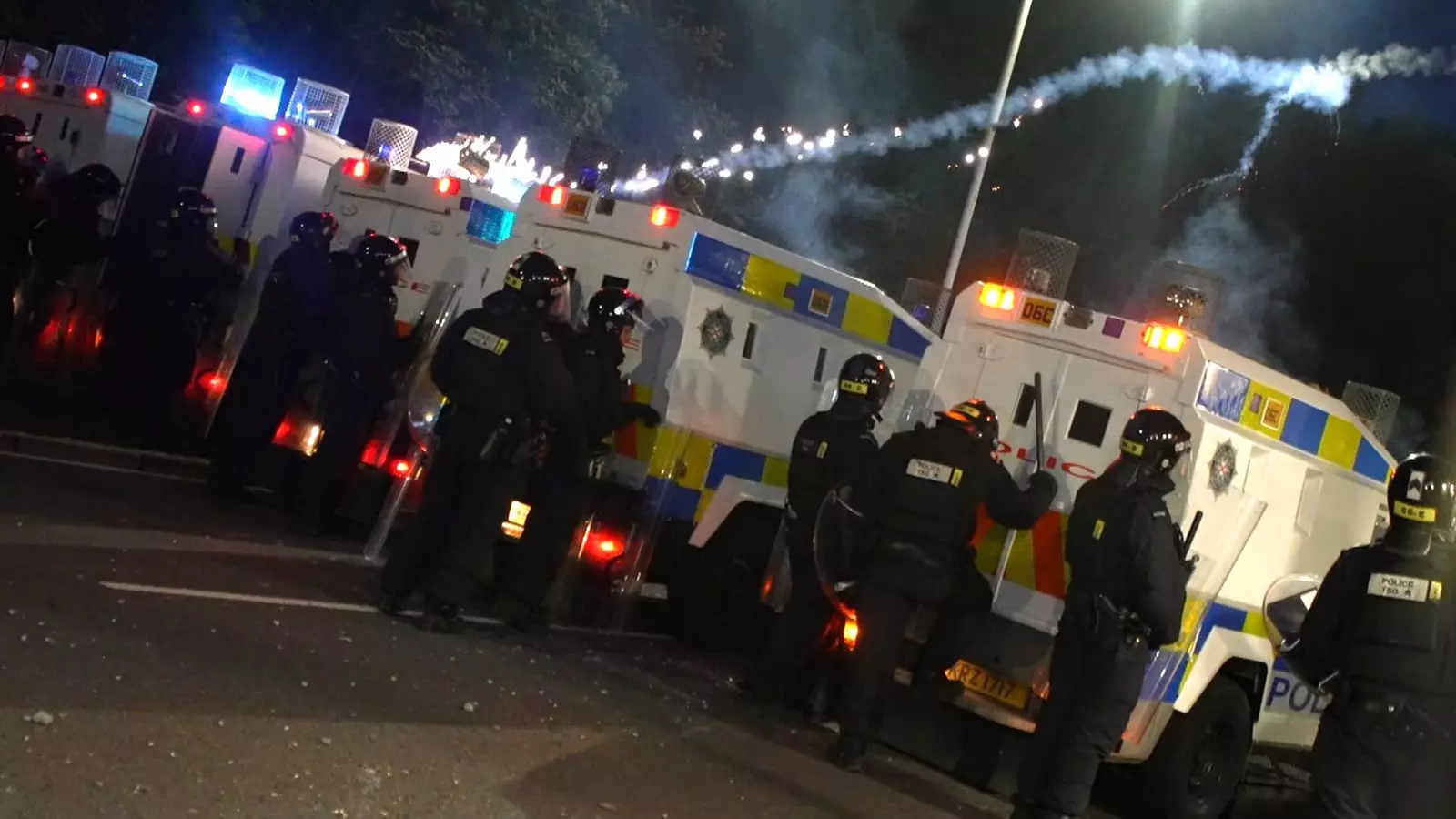The recent violence erupting in Northern Ireland is not just another chapter in the region’s tumultuous history; it is a stark reminder that deep-seated prejudices still linger in our society. As petrol bombs have lit up the nights and terrorized communities, the question remains: why are we experiencing this unchecked chaos? The recent riots, which began in Ballymena and swiftly spread to Portadown, are ignited by a tragedy that has spiraled into a wretched environment, where marginalized groups face unprovoked hostility.
This isn’t merely a spontaneous outbreak of rage; it is a manifestation of underlying societal issues that have been allowed to fester. Reports surfaced that two 14-year-old boys, accused of a serious crime, rallied thousands to both sides of the debate. The fervor escalated with a violent outpouring against a minority community, with law enforcement personnel now having to wear the scars of a conflict driven by ignorance. Can we truly live comfortably in a society that allows such acts of hatred to take center stage?
Racism at the Heart of the Unrest
The actions behind this violence are unsettling enough, but even more alarming is the motive—racism. After the arrest of the two boys, the initial protests morphed into a full-blown riot, flaring with derogatory chants and incendiary threats. It is despicable that the bastion of organized civility, the police, has been forced to wield water cannons against elements of the population who seem incapable of reason. Northern Ireland’s Assistant Chief Constable Ryan Henderson has stated that additional police from Scotland will be deployed to bolster numbers, but this merely treats a symptom instead of addressing the disease that is a culture of intolerance.
Women and children bear the weight of this chaos, suffering not just the immediate effects of violence but also the deep psychological scars such an environment leaves behind. The collateral damage is an appalling aspect of these events, with families displaced and livelihoods disrupted. First Minister Michelle O’Neill’s strong denunciation of the attacks underscores a crucial point: that we must actively reject this spiraling tide of hate and return to constructive discourse.
Political Leadership and Responsibility
The role that leadership plays during such tumultuous times cannot be understated, as seen through the actions and words of Northern Ireland’s Chief Constable Jon Boutcher. His commitment to pursuing those responsible for this violence not only signals strength but suggests a zero-tolerance policy towards bigotry. However, we can’t just cast responsibility on law enforcement; political leaders must also initiate a broader dialogue on unity and the implications of divisive narratives.
Healing the wounds of society requires more than just punitive measures; it demands introspection and education. If we do not actively challenge the narratives that fuel racism and violence, we risk the very fabric of our communities unraveling. A forward-looking approach entails not merely silencing the bigots but dismantling the systems and stereotypes that allow such hatred to flourish.
The ongoing unrest in Northern Ireland is harrowing and calls for urgent reflection and action. It is imperative that society confronts the uncomfortable truths around race and violence, proactively seeking to create a more inclusive and understanding community. Only then can we hope to see an end to the cycle of violence that threatens our collective future.


Leave a Reply